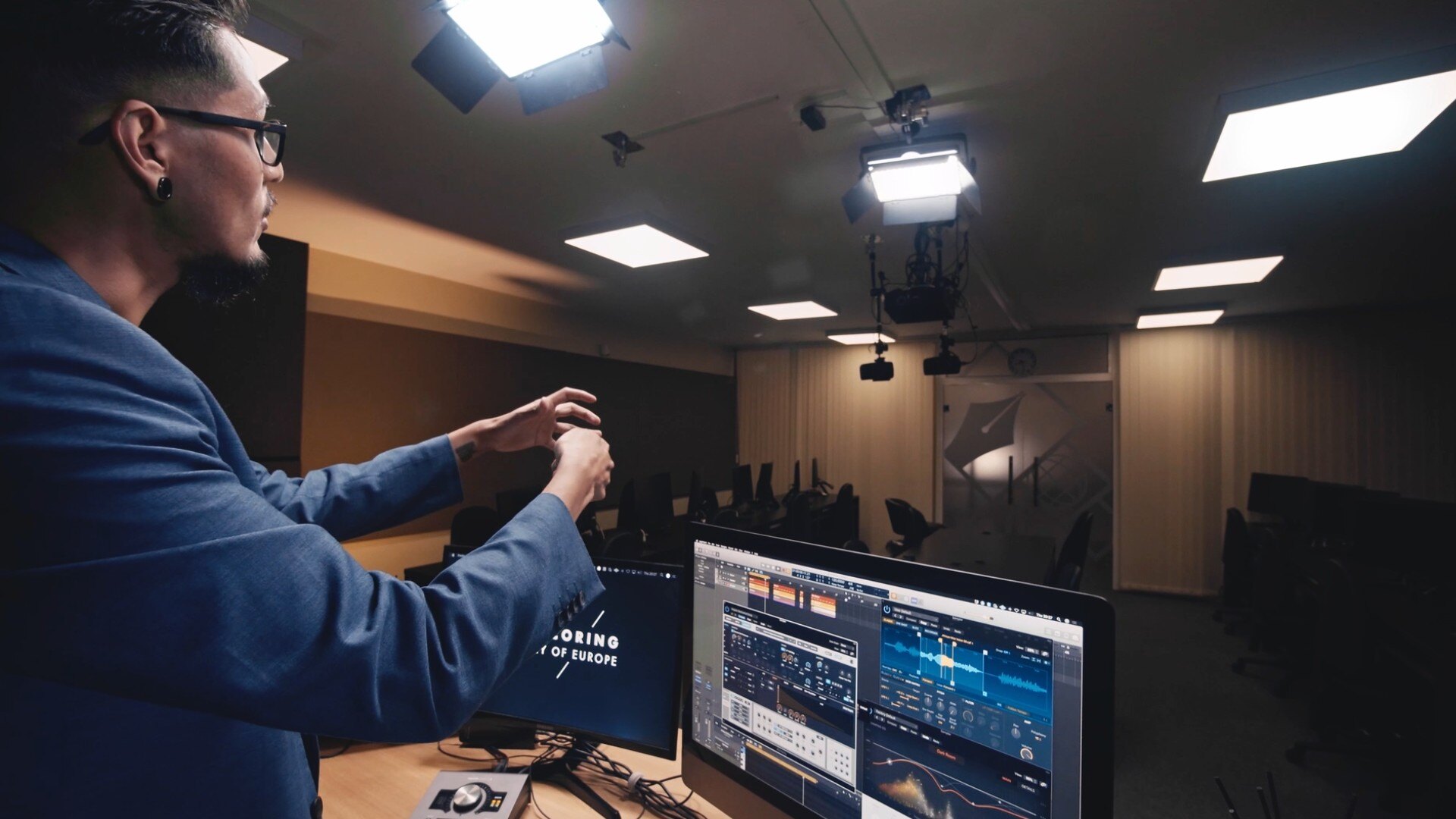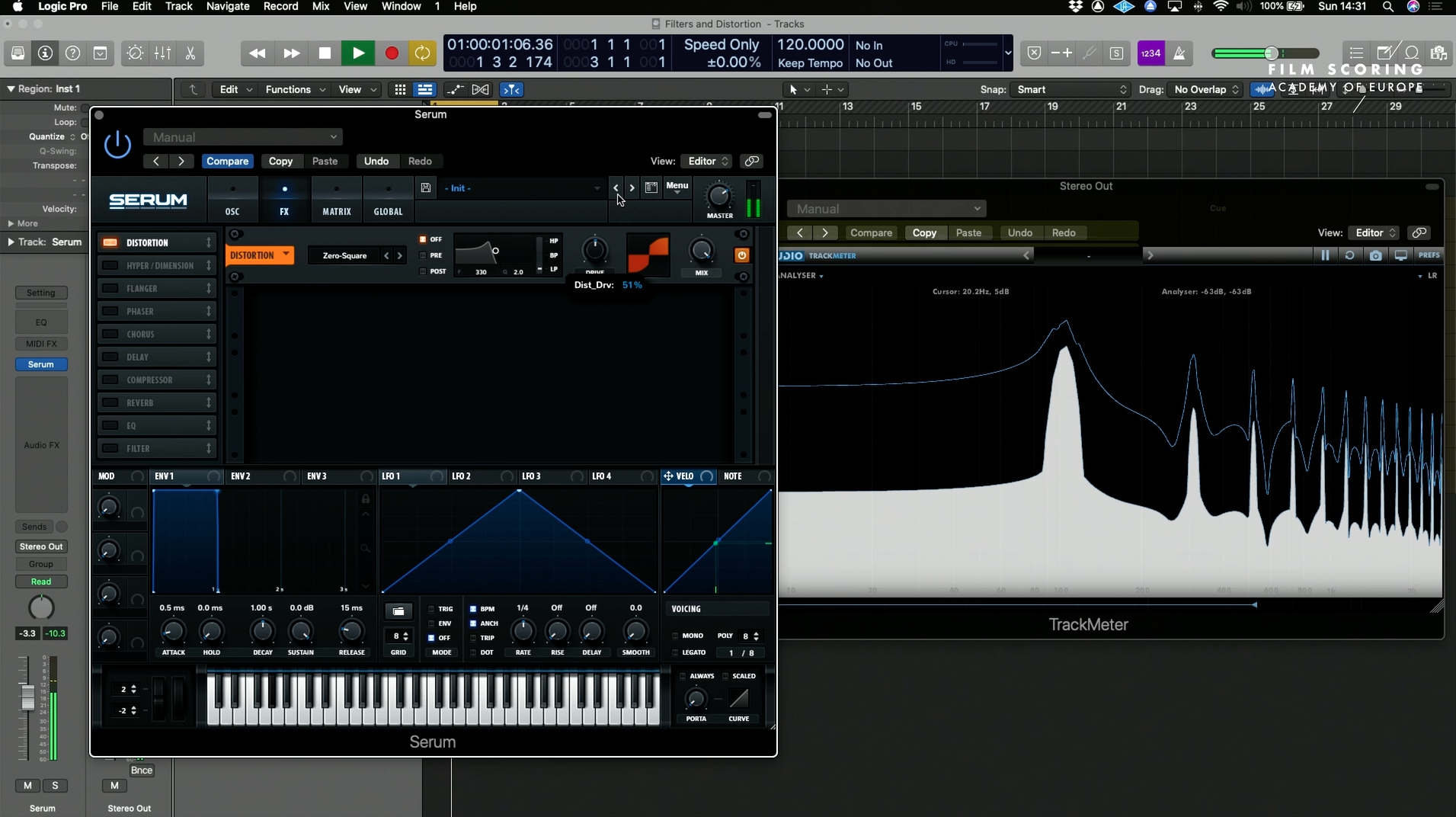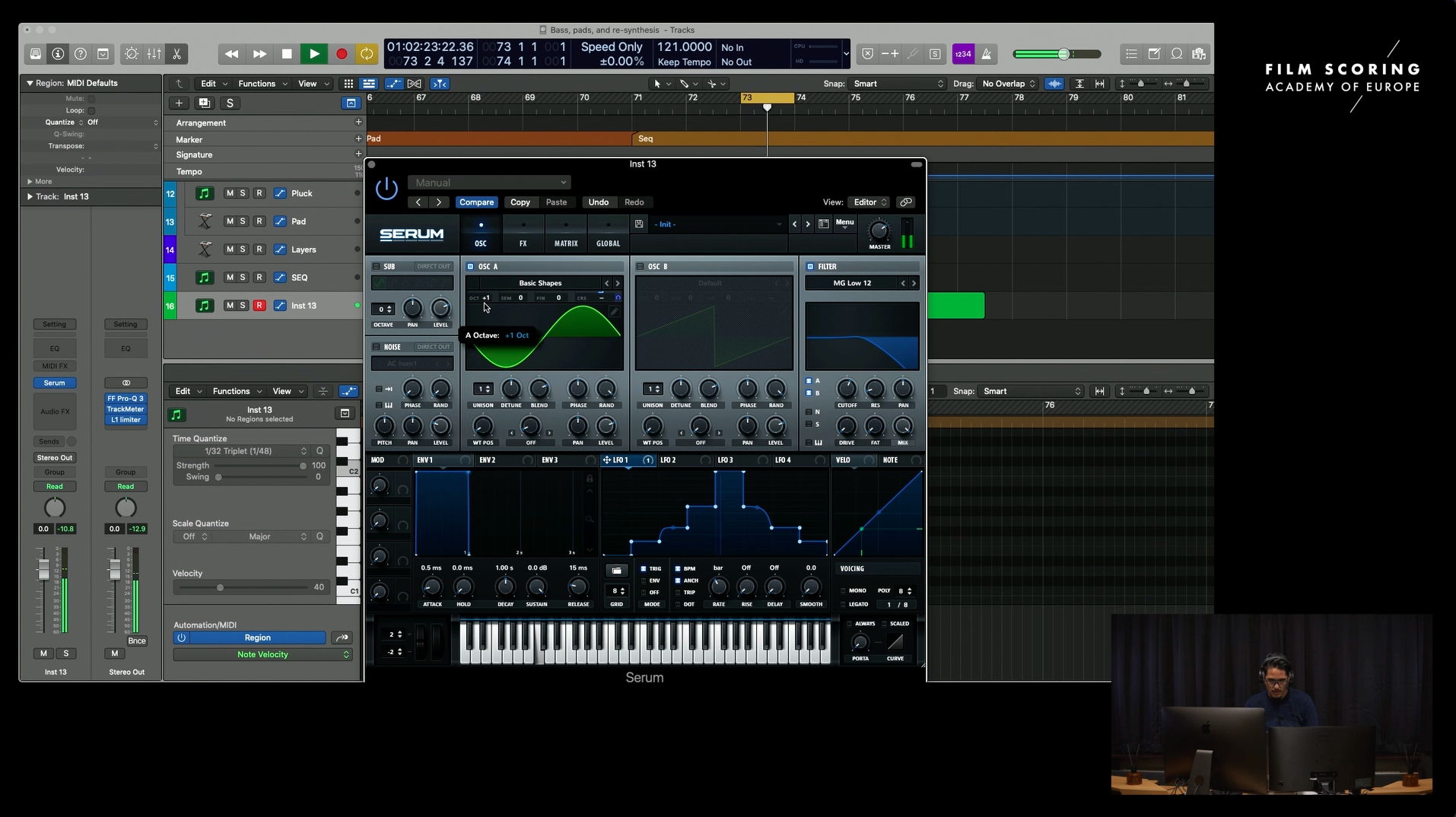Sound Design and Electronic Music Composition
Gain the skills and methodology you need to create electronic and electronically enhanced audio content at the forefront of technology, using industry-standard software tools, synthesis techniques and creative audio manipulation devices.
Module 8 (3 credits)
The module focuses on the art of crafting sounds by utilising different types of synthesis (Subtractive, Additive, Wavetable, FM) and pre-recorded elements, providing the student an extensive number of options for expanding their palette of instruments.

What will you learn in this module?
- Technical Complexity: understanding and navigating the intricacies of different synthesis techniques, software tools, and audio manipulation devices.
- Aesthetic Adaptation: Adapting to the specific aesthetic and technological demands of creating electronically enhanced audio content, including cinematic trailer music, can be a challenge for composers.
- Sonic Exploration: Exploring and expanding their sonic palette by incorporating various synthesis techniques and pre-recorded elements requires experimentation and a deep understanding of sound design principles.
- Integrating with Visuals: Learning to synchronize and integrate the electronically composed music with visual elements, such as timing and thematic alignment, can pose challenges for composers new to sound design and electronic music composition.
- Staying Up-to-Date: Keeping up with the rapid advancements in technology and industry standards related to sound design and electronic music composition can be a continuous challenge for composers striving to stay at the forefront of the field.

Why do we want you to become an skilled sound designer and electronic music composer?
- Expanded Creative Possibilities: Learning sound design and electronic music composition opens up a world of new creative possibilities for you, allowing you to explore a wide range of unique sounds and textures to enhance your compositions.
- Versatility: Acquiring skills in sound design and electronic music composition adds versatility to your toolkit, enabling you to work on diverse projects spanning film, games, commercials, and other multimedia formats.
- Industry Relevance: Sound design and electronic music composition are highly relevant in today's industry, with a growing demand for electronically enhanced audio content, cinematic trailer music, and hybrid scores. By mastering these skills, you can meet the needs of the market and stay competitive.
- Technological Proficiency: Learning industry-standard software tools, synthesis techniques, and audio manipulation devices enhances your technical proficiency, allowing you to leverage the latest technology to create cutting-edge compositions.
- Unique Sonic Identity: Developing a unique sonic aesthetic through sound design and electronic music composition sets you apart, giving you a distinct artistic voice and helping you stand out in the industry.
- Collaboration Opportunities: Sound design and electronic music composition often involve collaboration with sound designers, audio engineers, and other professionals in the field. By learning these skills, you can better communicate and collaborate with these team members, leading to more effective and seamless production processes.
- Enhanced Compositional Skills: Learning sound design principles and techniques can deepen your understanding of composition as a whole, leading to improved overall compositional skills and a more nuanced approach to music creation.

By the end of this module, you will acquire a broad vision of audio processing and manipulation and a better understanding of the sonic space, generating a better, faster and smarter approach to hybrid scores for film and visual media.
Have questions about this programme?
Speak with our Admissions Department. Submit our enquiry form to receive personalised answers to your questions.